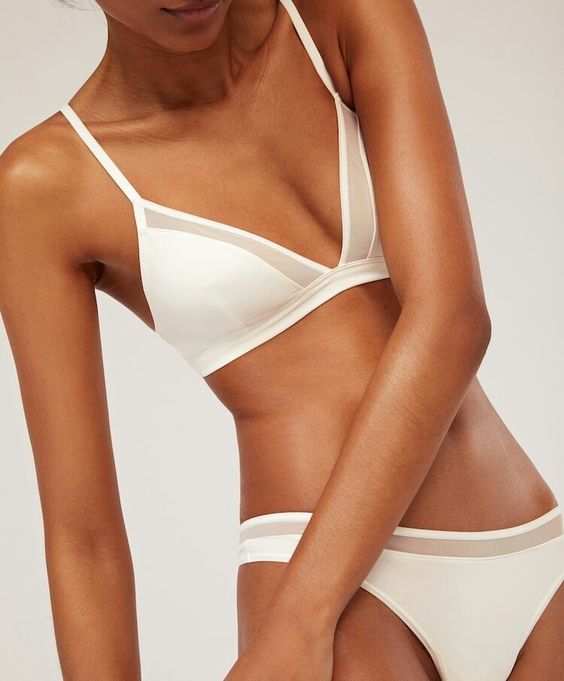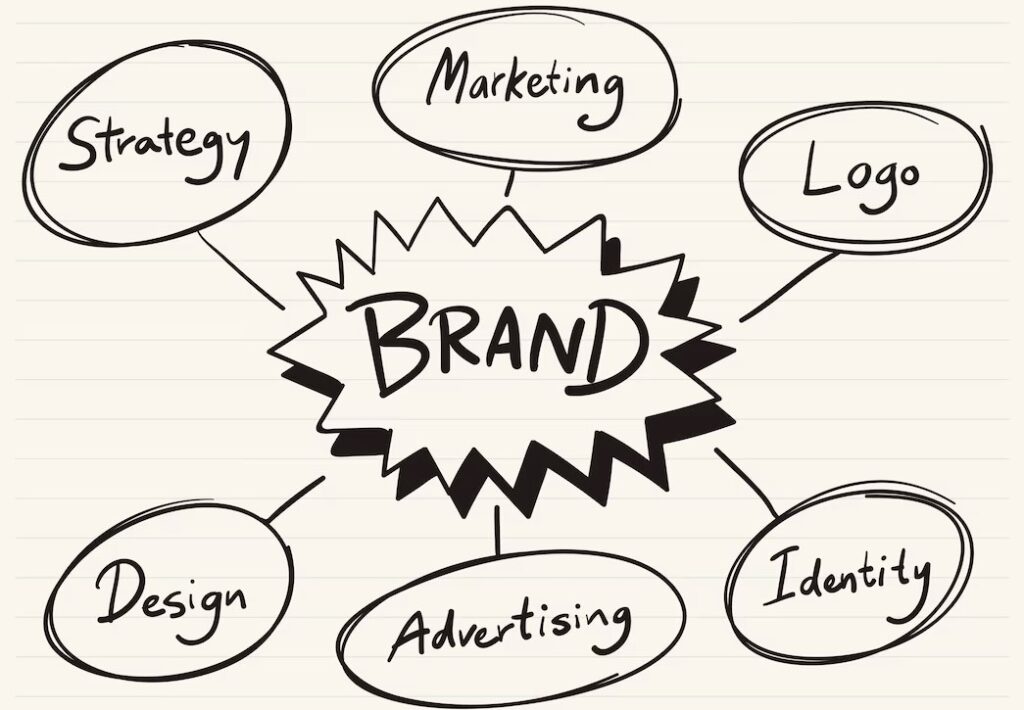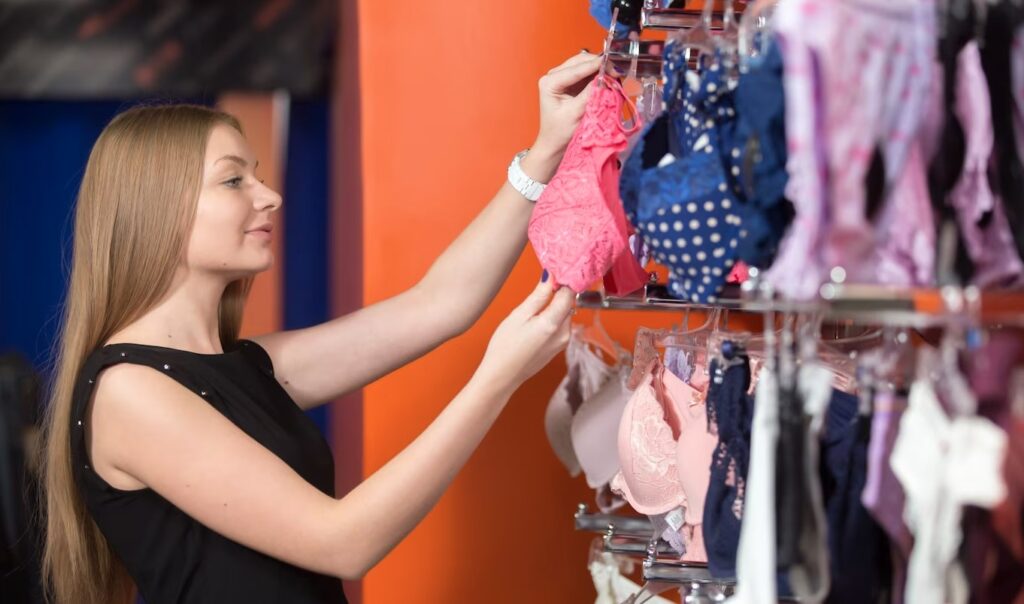
STANDING OUT IN A CROWD
The Power of Brand Research: A Guide for Intimate Apparel Start-ups
In today’s competitive business landscape, having a recognizable and beloved brand is a valuable asset. Did you know that 59% of consumers prefer to buy new products from brands they’re familiar with? In the Intimate Apparel industry, as a start-up or entrepreneur, you’ll face fierce competition from established big brands armed with devoted customers and unlimited marketing budgets. That’s why it’s crucial to differentiate yourself through a solid brand building process of your own. This is where brand research comes in.

WHAT’S IN A BRAND?
Imagine your brand as a reflection of how your customers perceive your business. It’s the impression they carry when they think about you, whether they’re interacting with your print materials, browsing your website, or experiencing your customer service. As Jeff Bezos, the founder of Amazon, aptly puts it, “Your brand is what other people say about you when you’re not in the room.” Your brand is essentially your reputation, and it’s paramount to get it right.
WHAT’S BRAND RESEARCH
Brand research is essential for assessing the health and potential of a brand, identifying threats and opportunities, and understanding customer alignment and marketplace positioning. It supports brand creation, development, and ongoing management, aiding in the analysis of the brand landscape, the formulation of launch strategies, and the continuous development of brand assets.

METHODS OF BRAND RESEARCH
Now, let’s explore some effective methods of brand research that can provide you with valuable insights. Remember, a robust research methodology includes information from multiple sources to paint a comprehensive picture of your brand landscape.
- Surveys: Surveys remain a great source of consumer views on brands and product categories. Whether conducted in person, over the phone, or online, surveys provide valuable quantitative insights. Tools like Survey Monkey can help you create and distribute surveys easily.
- Workshops and Focus Groups: Bringing together diverse participants, such as customers and employees, in workshops or focus groups can yield qualitative insights. Open-ended questions allow for deeper perceptions, opinions, and emotional responses to your brand.
- Retail Staff: Your customer-facing staff, including salespeople, account managers, shop assistants, and customer service representatives, have valuable insights from their interactions with customers. Their first-hand experiences can contribute to your brand research.
- Focused Discussions: Engaging in casual conversations with individuals offers a unique blend of qualitative and quantitative data. The natural flow of conversation reduces response bias found in surveys and allows unexpected aspects to surface.

KEY AREAS OF BRAND RESEARCH
When conducting brand research, focus on these key areas:
- Brand Awareness: Evaluate if people are aware of your brand and if they can recall it without prompts. Understand what your brand represents to consumers and how it compares to competitors. For luxury brands, maintaining exclusivity and admiration is crucial, while affordability and quality matter for more budget-friendly brands.
- Shopping Experience: Whether you have a physical store or an e-commerce platform, understanding customers’ perceptions of the shopping experience is invaluable. Identify pain points and improve the customer journey to reduce cart abandonment rates for online stores.
- Customer Awareness: Gain insights into your target customer’s demographics, such as age, gender, location, income, and education level. Dig deeper into their motivations, goals, pain points, influencers, and brand affinities to refine your brand strategy.

TIPS FOR EFFECTIVE BRAND RESEARCH
As you embark on brand research, keep these tips in mind:
- Ask Simple Questions: Don’t hesitate to ask straightforward questions. Often, simplicity encourages detailed responses.
- Embrace Emotional and Rational Insights: Seek both emotional and rational responses. Understanding why people choose one brand over another will inform your brand research effectively.
- Stay Objective: Approach research with an open mind. Avoid bringing assumptions or preconceived notions that could bias the results.
- Present Findings Clearly: When presenting your findings, prioritise clarity. Begin with methodology and key findings, followed by well-presented data and qualitative insights.

Ultimately, band research is a powerful tool for start-ups in the intimate apparel industry. It enables you to uncover valuable insights, shape your brand strategy, and identify opportunities for improvement. Remember, there’s no one-size-fits-all approach. Tailor your research methods to suit your brand and industry, and embrace both positive and painful findings as opportunities for growth. So, venture forth with curiosity and let brand research guide your start-up towards a successful and beloved brand.
Happy researching and best of luck on your brand-building journey!
If you’re eager to delve deeper, we wholeheartedly invite you to check out our blog post titled “The Story of a Brand Concept.” Trust us, it’s a fascinating read that will take you on a journey behind the scenes of how brand concepts are born and brought to life.
